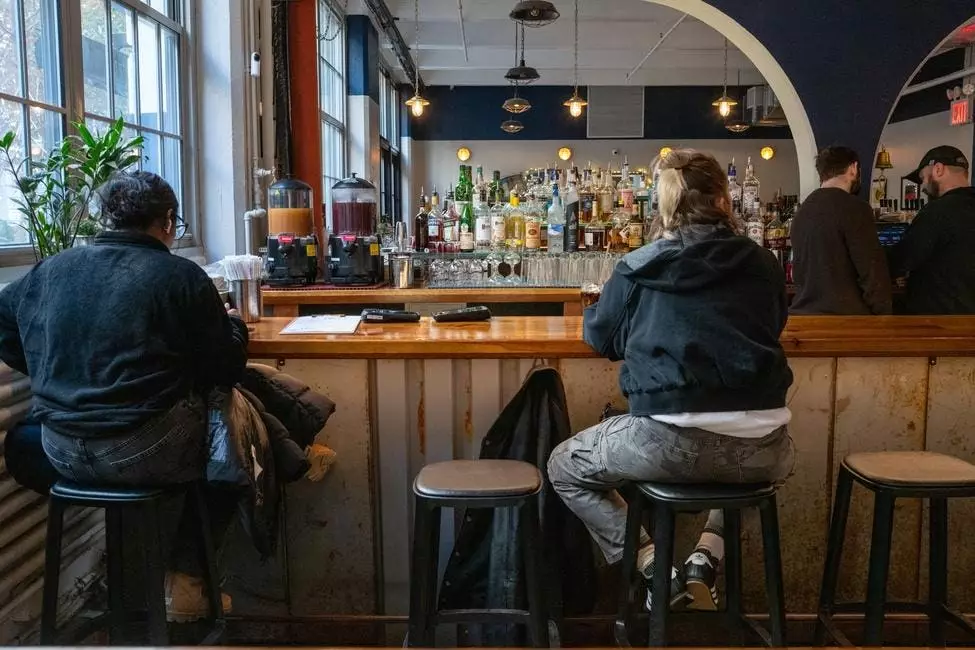Alcohol consumption has been deeply intertwined with American culture for generations. It is a staple at celebrations, a social lubricant, and often seen as a means to unwind. However, as society evolves, so too does our understanding of alcohol’s impact on health. Dr. Vivek Murthy, the U.S. Surgeon General, has recently shed light on the alarming link between alcohol and cancer, urging Americans to reconsider their drinking habits. His advisory has sparked a dialogue about the role of alcohol in our lives and whether it is time for a significant cultural reassessment of our drinking behaviors.
Dr. Murthy’s advisory emphasizes that alcohol is a preventable cause of cancer, responsible for approximately 100,000 cancer cases and 20,000 cancer-related deaths in the United States each year. These statistics are staggering and demand attention. The Surgeon General’s statement highlights a crucial gap in public awareness: less than half of Americans recognize alcohol as a significant risk factor for cancer. This disconnect underscores the need for improved health messaging and the urgency of updating warning labels on alcoholic beverages, to foster awareness about their associated health risks.
The types of cancer linked to alcohol consumption are diverse, including breast, liver, and colorectal cancer, among others. Yet, despite this information, cultural acceptance and the glamour surrounding drinking persist. This cultural tension is central to the changing landscape of alcohol consumption in America, as more individuals begin to question long-held beliefs about the necessity of alcohol in social settings.
The COVID-19 pandemic has provided a unique backdrop for reevaluating drinking habits. Lockdowns led many individuals to turn to alcohol for comfort, resulting in a notable increase in heavy drinking among Americans. However, this trend of excess has given way to a new paradigm. Recent studies reveal that younger generations, particularly Gen Z and Millennials, are gravitating toward reduced alcohol consumption, with 61% of Gen Z indicating plans to drink less in 2024, a significant increase from the previous year.
This shift is being driven not only by health concerns but also by a broader commitment to wellness. Younger adults are increasingly aware of the adverse effects of alcohol. They are opting for healthier lifestyles that prioritize mental clarity, physical well-being, and fiscal responsibility. The emergence of the „sober curious“ movement is indicative of this trend. Individuals are self-reflecting on their relationships with alcohol, recognizing the social conditioning that often equates drinking with fun and connection.
In response to changing preferences, the market for non-alcoholic beverages is thriving. Gone are the days when non-drinkers were relegated to boring options like soda or juice. Today’s non-alcoholic offerings include craft mocktails, zero-proof spirits, and sophisticated alcohol-free wines, which cater to discerning tastes without the added health risks associated with alcohol. This shift in product availability indicates a cultural reorientation towards inclusivity, allowing individuals to partake in social gatherings without the pressure to drink.
Moreover, the restaurant and bar scene is adapting to this demand, incorporating comprehensive non-alcoholic drink menus to accommodate those who prefer to abstain. Such innovations reflect an inclusive approach to socializing that embraces all preferences, facilitating connection without reliance on alcoholic beverages.
Economic concerns are also influencing drinking habits. Rising living costs and inflationary pressures are prompting people to rethink their discretionary spending. During times of economic uncertainty, consumers often turn to more cost-effective leisure options. This pattern mirrors past trends, such as during the Great Recession when cheaper beer maintained sales while premium cocktails and wines slumped. Today, the financial anxieties surrounding alcohol consumption further contribute to the evolving attitudes towards drinking, making non-alcohol alternatives appealing to budget-conscious consumers.
As Americans grapple with the implications of drinking on health and social norms, the discourse surrounding alcohol is evolving. The alarming findings of the Surgeon General’s advisory may act as a catalyst for a profound shift, reminiscent of historic anti-smoking campaigns. The current moment in American society invites us to ponder whether we might be witnessing the gradual transformation of alcohol from a cultural mainstay to a recognized health hazard.
This period of reevaluation encourages individuals to explore alternative ways to connect socially. Whether through non-alcoholic beverages or emerging options like THC-infused drinks, people are discovering new avenues for enjoyment and belonging. As we rethink our relationship with alcohol, our focus on health and connection suggests a promising future where rituals of socializing can exist without the health risks linked to drinking. Ultimately, while the drink in hand may evolve, the essence of shared experiences and human connection remains a steadfast element of our social fabric.


Napsat komentář